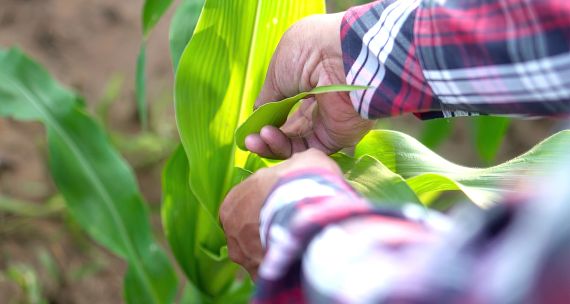The news that Canada and China have come to an interim agreement to postpone the imposition of new standards for importing canola seed, due to take effect on Sept. 1, and to continue discussions on the issue is welcome.
However, resolving this issue will not be easy and I doubt the Chinese will simply back down. At the risk of being accused of being a heretic, panda-hugger or unpatriotic Canadian, I have to admit I am unconvinced by the argument that the current dispute has been cooked up by the Chinese as a trade irritant to put Canada on the back foot, just at the time Prime Minister Justin Trudeau is landing in China for his first official visit.
According to this narrative, by creating a trade issue the Chinese will have put some coinage on the table that they can use to extract other concessions from Canada. The other “suspicion” is that this is a move to protect China’s domestic market for its own rapeseed crop, which apparently has had a bumper harvest this year.
Either of the above scenarios is, of course, possible. China is a tough negotiator and in the past has employed the technique of creating an incident as a measure to deal with other unrelated issues. One example often cited is the arrest of Kevin Garrett, a Canadian citizen who has long lived in China, on charges of espionage shortly after Ottawa openly accused China of being behind cyberattacks on the National Research Council of Canada.
Yet, in this case, there are several elements that don’t compute. Originally the Chinese measure to require that “dockage” — extraneous material contained in shipments of canola seed — be limited to no more than one per cent (down from the existing tolerance level of 2.5 per cent) was to have been imposed on April 1.
Canadian officials went into high gear to get that decision changed and the measure was postponed, as it happens, to Sept. 1, the day after Trudeau’s arrival in China. The move was justified by the Chinese as a measure to combat blackleg, a fungal disease that affects canola. Blackleg is a problem in Canada and elsewhere, although it can be controlled, but is generally not prevalent in China.
In terms of Trudeau’s visit, the Chinese clearly want to get off on the right foot with the new government, talking up a new “golden era” of bilateral relations and referring to the positive legacy created by the linkage between Trudeau pere and fils.
The Chinese ambassador has lamented that this granular issue over dockage threatens to cast a pall on the visit and that Canada is being “unfair” and “inflexible.” Are we?
The issue with dockage is that the Canadian industry is unwilling to meet the new Chinese standard (which will apply not just to Canadian canola, by the way, but also to imports into China from other countries such as Australia). Canada is not the largest producer of canola (a modified form of rapeseed) but is the world’s largest exporter of canola oil, meal and seed. It is technically feasible to meet the Chinese standard — in fact, since the announcement of the new lower tolerance level, several contracts meeting the tighter specification have been filled by Canadian producers. (This has displeased many in Canada, and was compared to crossing a picket line by one industry source).
The majority of the Canadian industry does not like the new standard because not only do they think it is unnecessary and not based on sound science in terms of combating blackleg, but also, primarily, because meeting the standard would be expensive, inconvenient and would cause a delay in the handling of other grains. Also, if China gets its way, other export markets could soon start demanding the tighter standard. Who can blame the industry for fighting to keep the status quo? So far the focus has been on trying to get the Chinese to back down.
I am not an agricultural scientist so I am unable to say whether the Chinese position has any scientific credibility. But is that the key issue? It is entirely plausible that the Chinese are genuinely concerned about the introduction of blackleg and are prepared to take draconian measures to combat it. After all, we don’t agree with the EU on the science of whether GMO foods pose a health hazard, but we respect their requirements and have recognized that if we want to sell food to the EU, it had better be GMO-free.
China is by far our largest export market for canola products. If our best customer, who has had a long and sorry history with adulterated food and crop contamination, wants to impose stricter standards, why would we not want to make an effort to meet what the market is demanding? If consumers want hormone-free beef, smart suppliers start shifting their production to hormone-free beef rather than trying to convince consumers that beef containing hormones is harmless or berating them for insisting on something not based on the industry’s interpretation of sound science.
Canada’s position on canola seed seems to be, “don’t give your customers what they want; tell them what you are prepared to supply.”
Is this just a means by China to reduce imports of canola seed? This argument is not convincing. If China simply wanted to reduce imports of canola seed, it could do so by giving guidance to its major importers, many of whom are state owned, and reduce purchases. If it doesn’t need canola seed, why import it?
This is not the first time that China has suspended imports of Canadian canola seed over concerns regarding fungal contamination. In that earlier dispute, reduction of seed imports ended up increasing Chinese imports of canola oil crushed in Canada — not necessarily a bad outcome for the latter.
China still needs to import edible oils, including Canadian canola, although it can shift imports to some extent to other products such as soy. However, it also needs to protect the integrity of its agriculture, which is already severely stressed by environmental factors.
We may not appreciate the Chinese point of view on this, but they are our largest customer. Perhaps we should listen to them.
This piece was first published September 2, 2016 in The Vancouver Sun.



